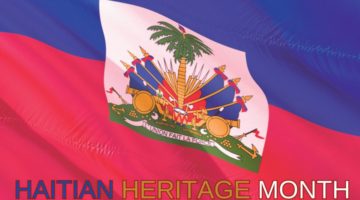PRETORIA, South Africa (AP) _ South Africa’s long-dominant ANC won overwhelmingly in parliamentary elections, but did not retain the two-thirds majority it won with ease in the last elections, according to the final tally announced Saturday.
The victory puts party leader Jacob Zuma in line for the presidency, but without the seats in the 400-member parliament to enact major budgetary plans or legislation unchallenged.
A split in the ANC and questions about Zuma’s fitness to govern after sex and corruption scandals were the main contributing factors.
Zuma told reporters he was not disappointed to fall just short of two-thirds. “We have won a decisive majority,” he said.
Parliament elects the president in South Africa, and was expected to vote Zuma into office May 6.
Zuma was treated like a president-elect Saturday, surrounded by photographers and well-wishers as he arrived to hear the final results announced, then appearing live on state television to deliver a 20-minute speech in which he promised his administration would speed up delivery of jobs, houses, school and clinics to the black majority that was denied so much under apartheid, and which has seen slow change since the ANC first took over in 1994.
He also offered his hand to rival parties.
“We may disagree on how to build a better life for all, but what unites us is the fact that this country belongs to all of us, black, white, colored, Indian, together.”
The African National Congress took 65.9 percent of the nearly 18 million votes cast Wednesday. It was allotted 264 seats, three short of two-thirds, and 33 fewer than it had held in the last parliament.
The main Democratic Alliance got 67, up from 47. The ANC breakaway party, known as COPE, got 30; it did not exist the last time South Africans voted. The Inkatha Freedom Party 18, down from 23. Nine other parties shared the remaining seats.
The seats were allotted by election officials according to a formula after the final count was certified.
The ANC won 69.69 percent of the vote in the last elections in 2004, when it was led by Zuma’s rival Thabo Mbeki. It won 66.35 percent in 1999. In the country’s first all-race vote in 1994, the ANC won 62.64 percent of the vote.
The party’s rivals will make much of the slide, however slight.
It could be seen as a message that voters want some limits on the party. ANC rivals had argued Zuma should not have the two-thirds majority needed to legislate unchallenged or to change the constitution.
It could be linked to the split in the movement that defeated apartheid. A new, black-led party formed by disgruntled former ANC leaders close to Mbeki was placed third in the race, with just over 7 percent of the final tally.
In total more than 77 percent of the country’s record 23 million registered voters cast ballots. Turnout in 2004 was about 76 percent of more than 20 million registered voters.
A strong ethnic vote from Zulus in Zuma’s rural homeland helped boost the ANC, which sees the populist Zuma as the first leader who can energize voters since the legendary Nelson Mandela. Supporters confident of an ANC victory have been celebrating since voting ended Wednesday.
Zuma faces a heavy responsibility _ meeting expectations for change among South Africa’s impoverished black majority.
Some say Zuma is too beholden to unions and leftists, and will not be able to fulfill his promises of creating jobs and a stronger social safety net. At the end of the campaign, Zuma was talking not about creating jobs, but staving off job losses.
The country’s racial divide still runs deep, as seen from the results in the Western Cape province. Mixed-race voters, feeling marginalized now after being treated better than blacks under apartheid’s racist rules, make up more than half of the Western Cape’s population and voted largely for the opposition Democratic Alliance.
Whites also turned out in large numbers for the largely white Democratic Alliance, which has courted mixed-race voters and was close to gaining an outright majority in the Western Cape provincial legislature. The ANC trailed with less than one-third of the vote.
Democratic Alliance leader Helen Zille had said her main election goals were to stop the ANC’s two-thirds majority and to win the Western Cape, which is the heart of the country’s wine and tourism industries. Zille, who won praise for her stint as mayor of Cape Town, is now expected to become the province’s premier.
Mixed-race people _ many of whom trace their ancestry to Malay slaves _ had more rights than blacks under apartheid and emerged skeptical of the ANC, which they see as a black party. The ANC, though, has support from some mixed-race South Africans and whites across South Africa, and politicians from both groups have prominent roles in the party.
The ANC lost support in eight of the country’s nine provinces, with a drop of up to 10 points in some cases, but still won those provinces. However, it gained about 16 percentage points in KwaZulu-Natal at the expense of the traditional Zulu party, the Inkatha Freedom Party.
COPE came in second in five of the provinces, a major achievement for a group that only had a few months to prepare.
___
Associated Press Writer Donna Bryson contributed to this report.
Pictured above is Jacob Zuma.










No Comment